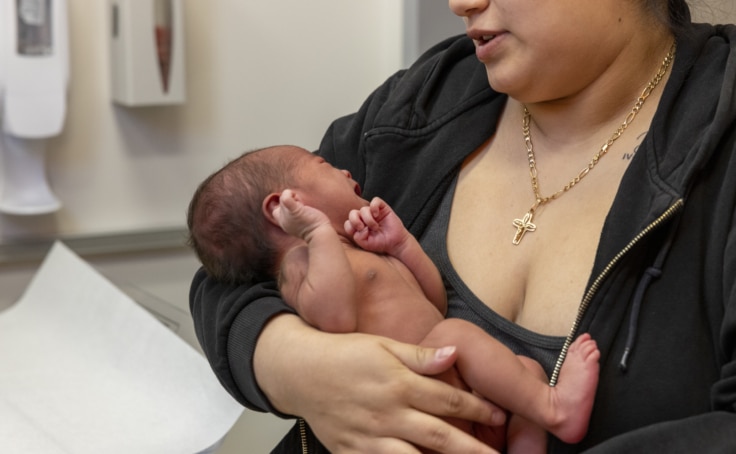Understanding the impact of mental health in babies
The perinatal period and a baby's first few years of life are critical for lifelong mental health.
A warm smile. A familiar song. A gentle touch. With each positive interaction, babies develop important neural pathways that shape their future social-emotional and cognitive functioning.
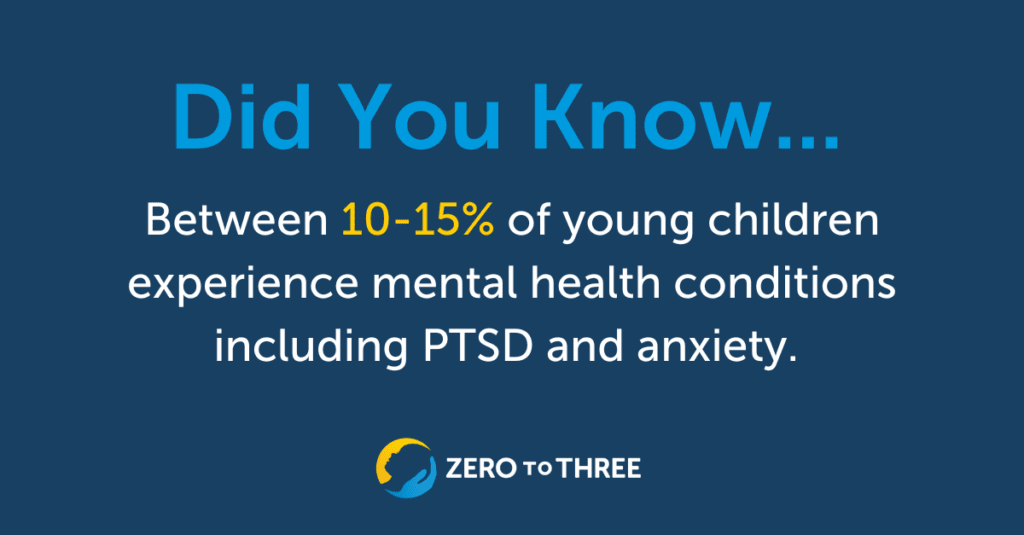
Brain development in the prenatal and first three years of life advances at rates that exceed any other time period. This window of infancy and early childhood provides optimal opportunities to build healthy brain development, support the earliest relationships, and promote infant and early childhood mental health (IECMH).
Research has consistently found that securely attached children experience better relationships with their parents and peers, heightened optimism, stronger self-esteem and enhanced problem-solving abilities. Conversely, adverse experiences such as neglect, abuse, or trauma can have negative effects on a baby’s mental health, potentially leading to issues like anxiety, depression, and behavioral problems throughout childhood, adolescence and even adulthood.
Even in a nurturing environment, mental health problems can still manifest. Regulatory problems in infancy are associated with later motor, language and cognitive delays, behavioral problems and ongoing parent-child relationship difficulties.
This is why early identification and intervention is key when it comes to infant and early childhood mental health (IECMH) and includes understanding and identifying both protective and risk factors in pregnancy and the early postnatal period.
IECMH is the developing capacity of the infant/young child to form close and secure relationships; experience, manage, and express a full range of emotions; and explore the environment and learn—all in the context of family, community, and culture.
Everyone has a role to play
For early childhood professionals, using a diversity-informed approach for each family is key.
IECMH is a multidisciplinary field, inclusive of persons from many professional and community backgrounds and systems, focusing on enhancing the emotional and social competence of infants, toddlers, and preschool-aged children through healthy relationships. Anyone who touches the lives of babies, young children and their families can contribute to promoting infant and early childhood mental health (IECMH).
Cultural connection not only determines how “healthy social-emotional development” is understood by parents and caregivers, but also defines the coping mechanisms, child-rearing beliefs, and expressions of love and nurturing they may use to promote mental health in babies and young children.
Diversity-informed practice helps us approach the work through a lens of curiosity and recognize that we cannot filter the experience of children and families through just our own singular lens.
Katrina Masacaet, PD Manager, Professional Innovations Division (PID)
What IECMH Professionals are Saying
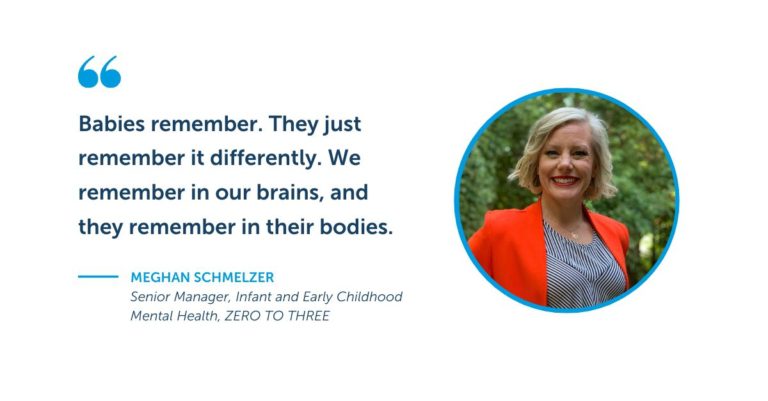
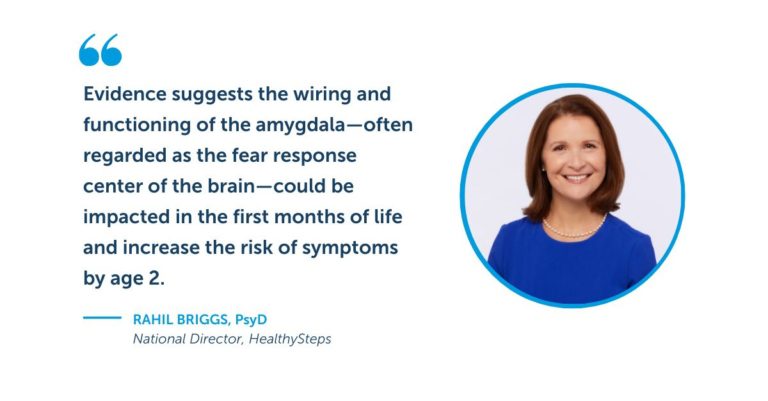
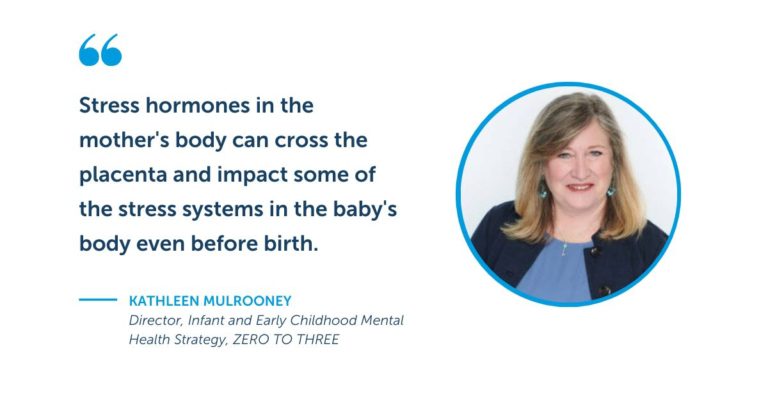
Exploring a Diagnosis
The first signs of mental health disorders can manifest in infancy. Symptoms can include eating and sleeping difficulties, the inability to calm, avoiding eye contact and other less typical characteristics like atypical responses to stimuli.
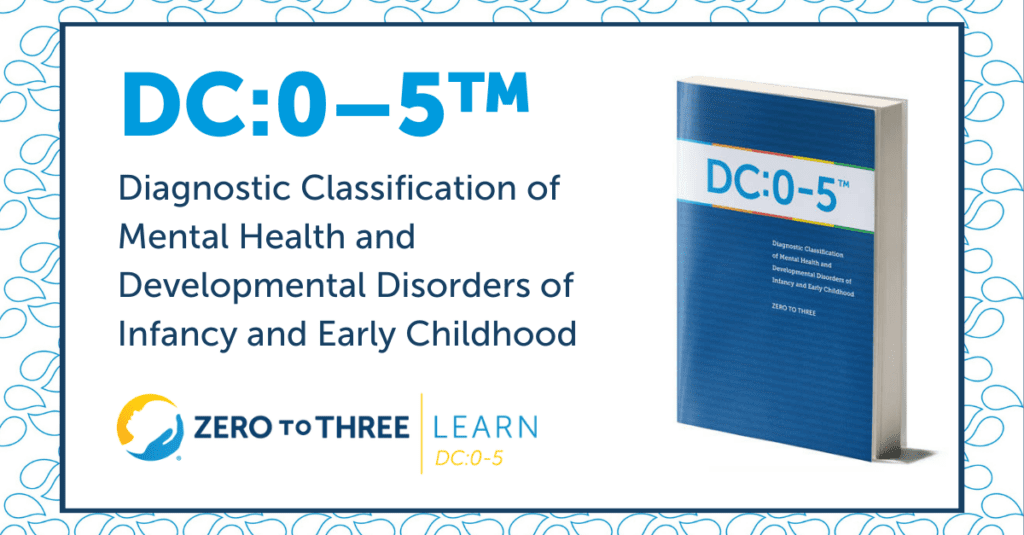
In 1994, we published our first manual to help professionals diagnose and treat mental health problems in the earliest years. As of August 2021, over 17,500 copies of DC: 0–5 have been sold and more than 3000 mental health clinicians across five continents have completed ZERO TO THREE approved trainings. In a recent study, 88% of IECMH practitioners reported the manual was “very helpful” when diagnosing young children and 69% found the manual “very helpful” in their process of developing a clinical formulation or treatment plan. Additionally, the DC: 0-5 Casebook uses infant mental health case studies to help inform clinical diagnosis and treatment.
We have amazing tools and treatments to recognize and respond to mental health challenges in young children and those tools will not benefit who they are meant for unless we can equip professionals with the knowledge and support they need.
Sufna John, PhD, Child-Parent Psychotherapy (CPP) and DC:0-5 State Trainer
Join the Next DC:0-5 Clinical Training
IECMH in Your Inbox
Sign up to recieve the latest research, updates and advocacy opportunites to promote infant and early childhood mental health.


